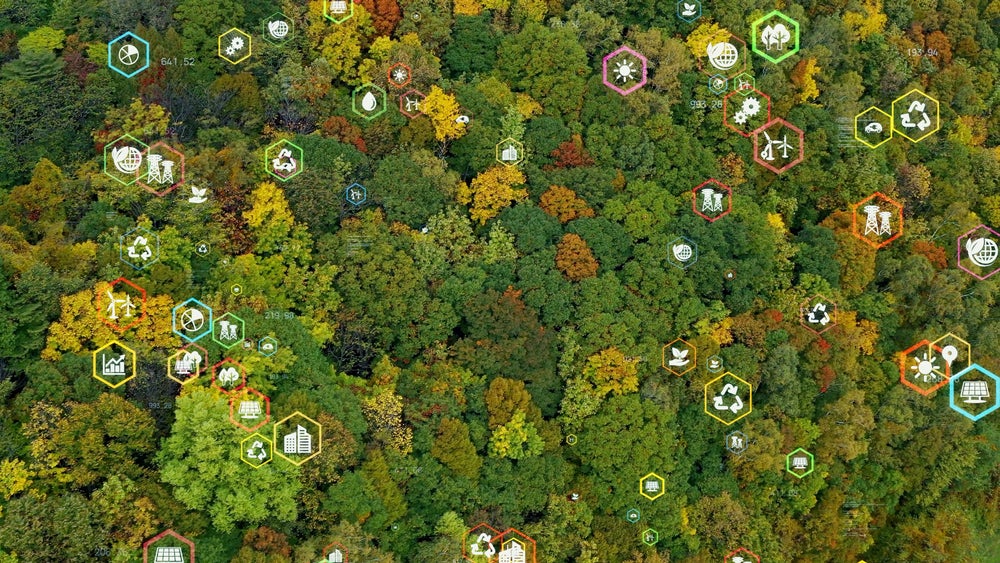
One of the biggest trends in 2021 was environmental, social, and governance (ESG). Interest and investment in this area grew to new heights, but will this continue for another year? Will the area continue to deliver returns over the next year? What is the future of ESG? Patrick Brusnahan asked the sector for its thoughts
Frédérique Carrier, head of investment strategy, RBC Wealth Management
This as an important investment theme and we anticipate it will attract capital from institutional and individual investors.
Investors should maintain a pragmatic approach given the serious gaps between net-zero ambitions and potential outcomes. For now, we would focus on opportunities that are likely to find their way to market in the next 5 – 10 years.
Mona Shah, head of sustainable investments, Stonehage Fleming
For investors with a long-term horizon, we believe this is an excellent entry point for climate solutions or environmental strategies. It seems to us that the market is being myopic around the momentum surrounding decarbonisation, as with the oil price remaining at c. $80 per barrel the energy sector has been re-rated, whilst renewable energy remains in negative territory year to date.
COP26 was a decent, albeit not impressive, step forwards; 90% of the world is now committed to net zero, even if progress lagged on 1.5 degrees Celsius of warming. Although a global carbon tax was not agreed on, the private sector is hyperactive on carbon neutrality, and it needs to be, as the consumer is demanding it. But there is also a financial consideration as higher emitting companies will be penalised with a high cost of debt going forwards.
It strikes us that many global large cap companies in core portfolios today will become clients of climate impact enablers if they need to reduce carbon, water and waste, particularly as emitters are fined or taxed.
How well do you really know your competitors?
Access the most comprehensive Company Profiles on the market, powered by GlobalData. Save hours of research. Gain competitive edge.

Thank you!
Your download email will arrive shortly
Not ready to buy yet? Download a free sample
We are confident about the unique quality of our Company Profiles. However, we want you to make the most beneficial decision for your business, so we offer a free sample that you can download by submitting the below form
By GlobalDataWe believe a real and interesting opportunity exists today to access an interesting underrepresented structural growth area at cheaper valuations than many other growth themes. An experienced specialist environmental active manager would be our preferred way to play this theme.
Greg Kyle-Langley, executive director, head of entrepreneurs, Coutts
I think clients will ask increasingly tough questions here. Do you have a strategy of divestment or engagement? What impact have you had on the carbon intensity of your portfolios so far? The responsible investing experts in the asset management teams may be able to answer, but we’re going to need to help all our relationship managers – and leaders – be prepared to have much richer conversations. And that’s assuming you have a good story to tell.
Stephen Metcalf, head of sustainable investing, RBC Wealth Management
Climate change is the issue of our times, and will have wide-reaching effects on societies and economies worldwide, without exception. Wealth managers and investors must treat climate change as a core investment risk as well as an opportunity and get ahead of it now where possible.
Given clients have different preferences in this space, and the multi-dimensional nature of the problem, wealth managers must deploy a wide range of investment solutions that focus on areas such as: exclusions, growth potential, and what the low carbon economy will look like.
The main opportunity going forward will be the so called ‘ESG Momentum’, where investors look for companies with improving ESG credentials. This contrasts with the established ‘Best in Class’ approach which dominates the industry currently, whereby companies with good existing credentials are preferred. When this new approach is layered with investor activism and engagement, the outcome has the potential to deliver more investment outperformance as well as ultimately be more impactful for wider society and the environment.
If the industry can predict how widely-utilised ESG metrics will evolve over time for specific companies, and hence find the next much-loved ESG stock before everyone else does, managers have the potential to outperform. And, arguably, providing capital to companies who need it to change for the better has more additionality than only investing in companies that the market is already queuing up to invest in.
Wealth managers will be expected to measure the environmental footprint of their portfolios as a starting point, feed this back into their investment processes and provide tangible impact metrics to clients. Advisers should be able to say “these are the carbon emissions in your portfolio”, or “this is how much waste is generated by the companies”. We expect regulators will begin mandating this kind of reporting and portfolios will no longer be measured just on risk and return, but also on impact.







